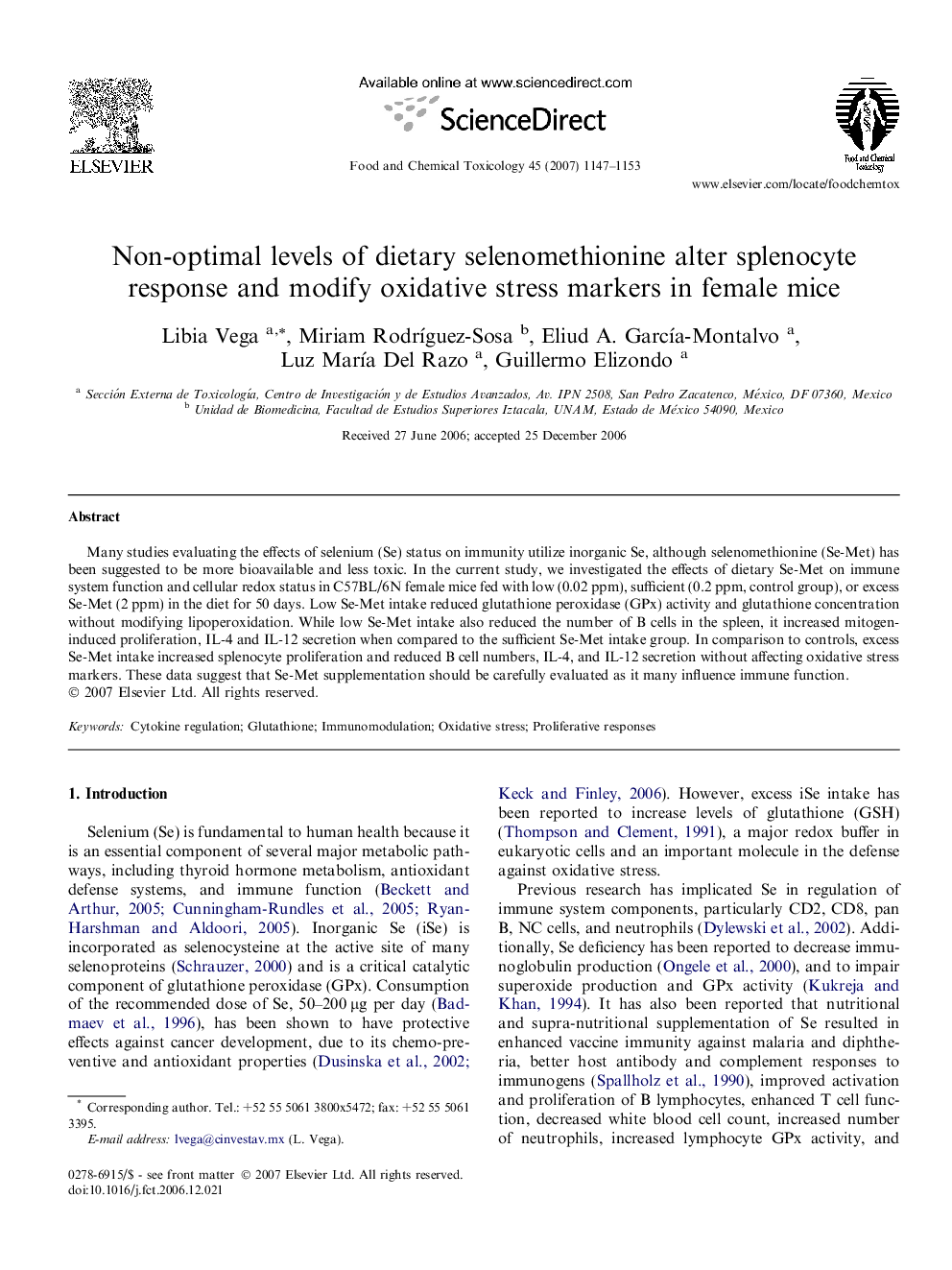| Article ID | Journal | Published Year | Pages | File Type |
|---|---|---|---|---|
| 2586662 | Food and Chemical Toxicology | 2007 | 7 Pages |
Many studies evaluating the effects of selenium (Se) status on immunity utilize inorganic Se, although selenomethionine (Se-Met) has been suggested to be more bioavailable and less toxic. In the current study, we investigated the effects of dietary Se-Met on immune system function and cellular redox status in C57BL/6N female mice fed with low (0.02 ppm), sufficient (0.2 ppm, control group), or excess Se-Met (2 ppm) in the diet for 50 days. Low Se-Met intake reduced glutathione peroxidase (GPx) activity and glutathione concentration without modifying lipoperoxidation. While low Se-Met intake also reduced the number of B cells in the spleen, it increased mitogen-induced proliferation, IL-4 and IL-12 secretion when compared to the sufficient Se-Met intake group. In comparison to controls, excess Se-Met intake increased splenocyte proliferation and reduced B cell numbers, IL-4, and IL-12 secretion without affecting oxidative stress markers. These data suggest that Se-Met supplementation should be carefully evaluated as it many influence immune function.
